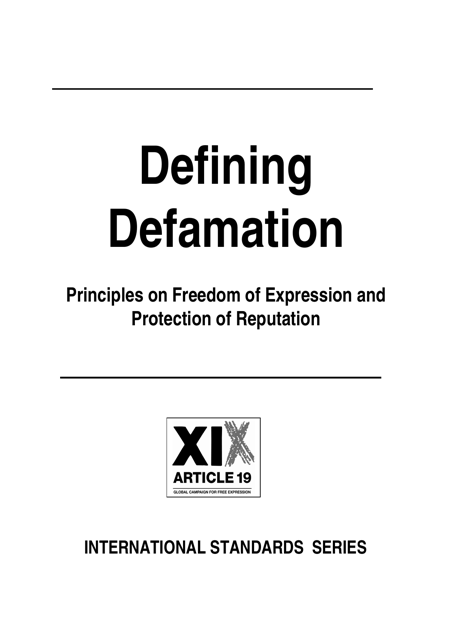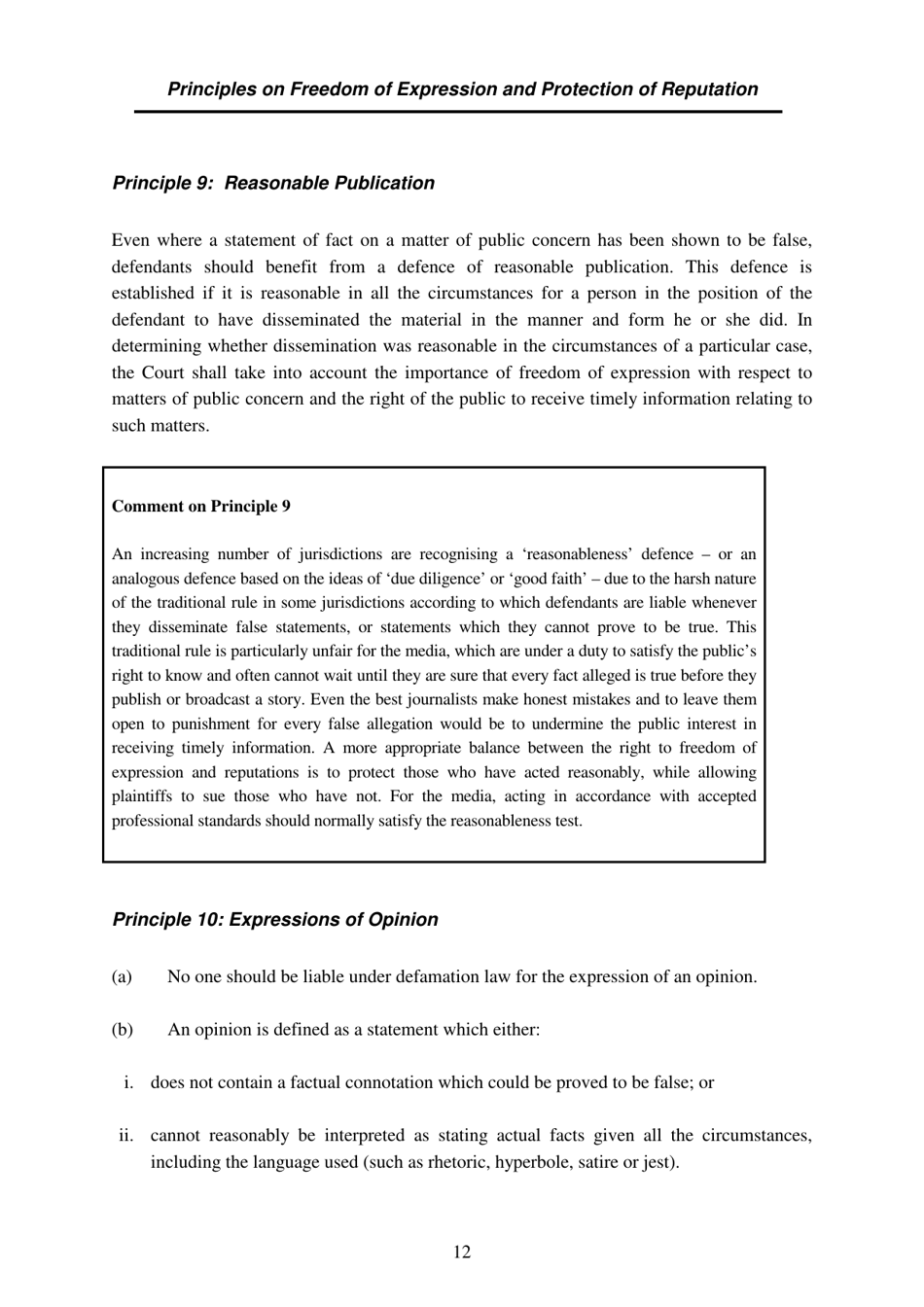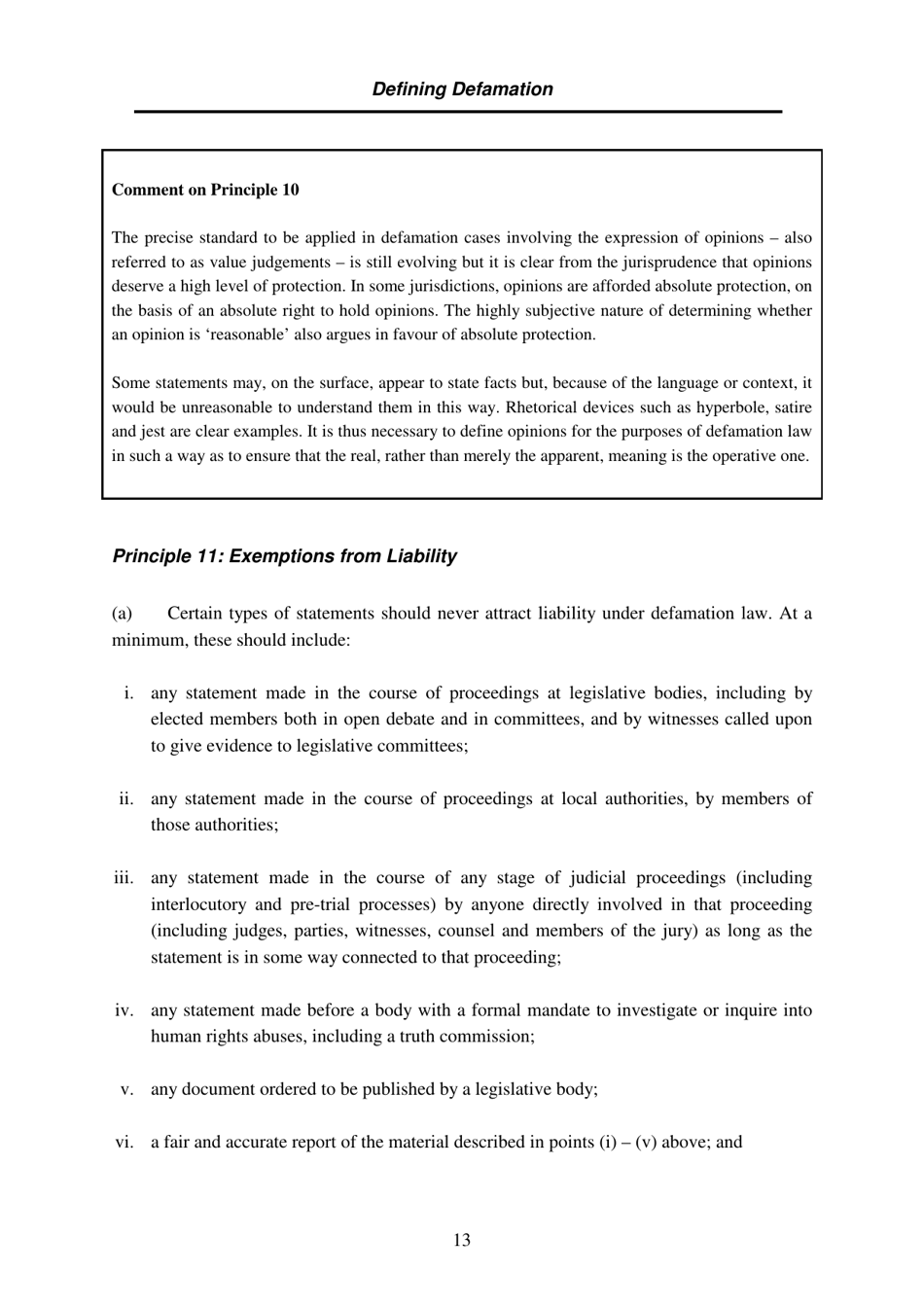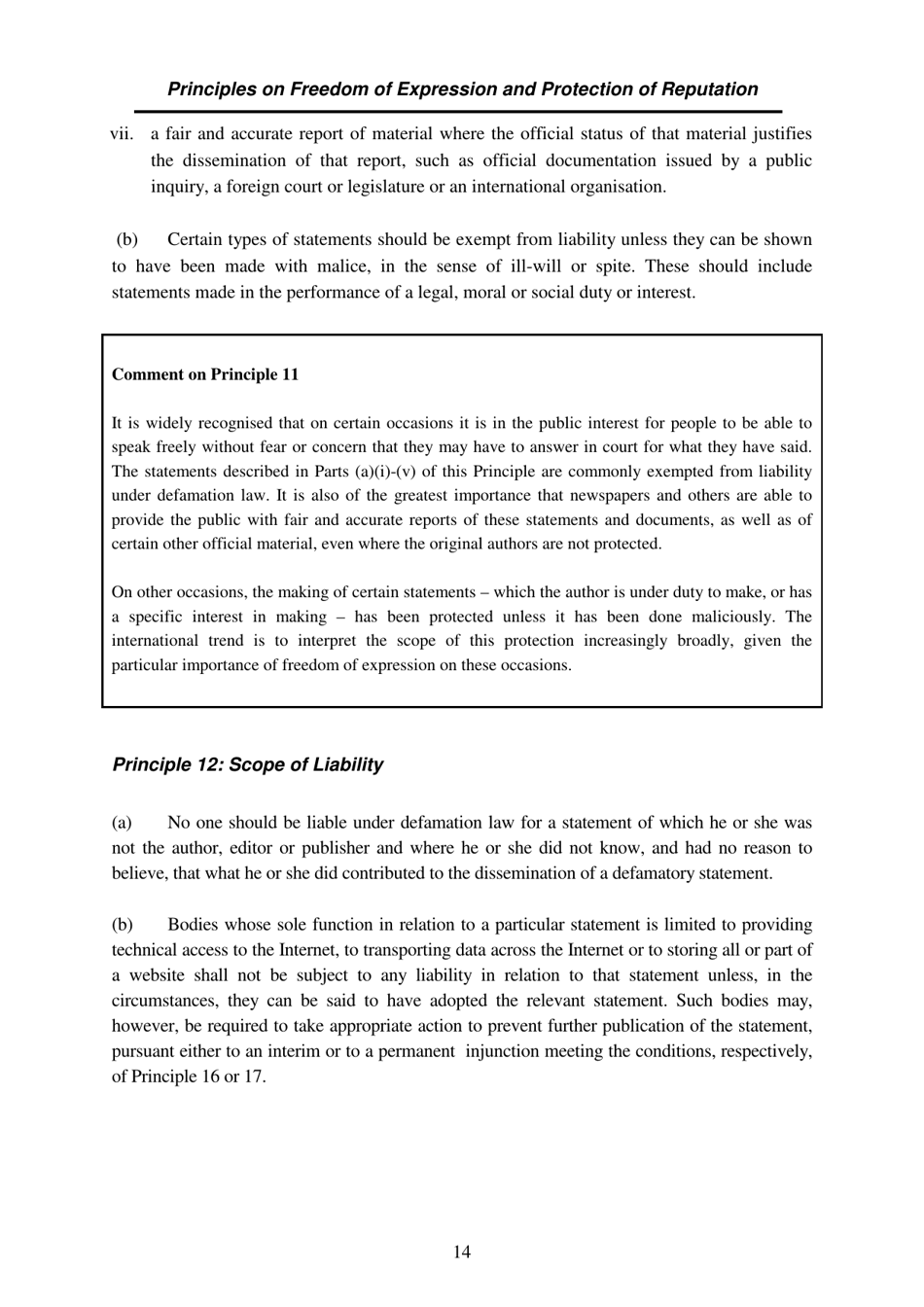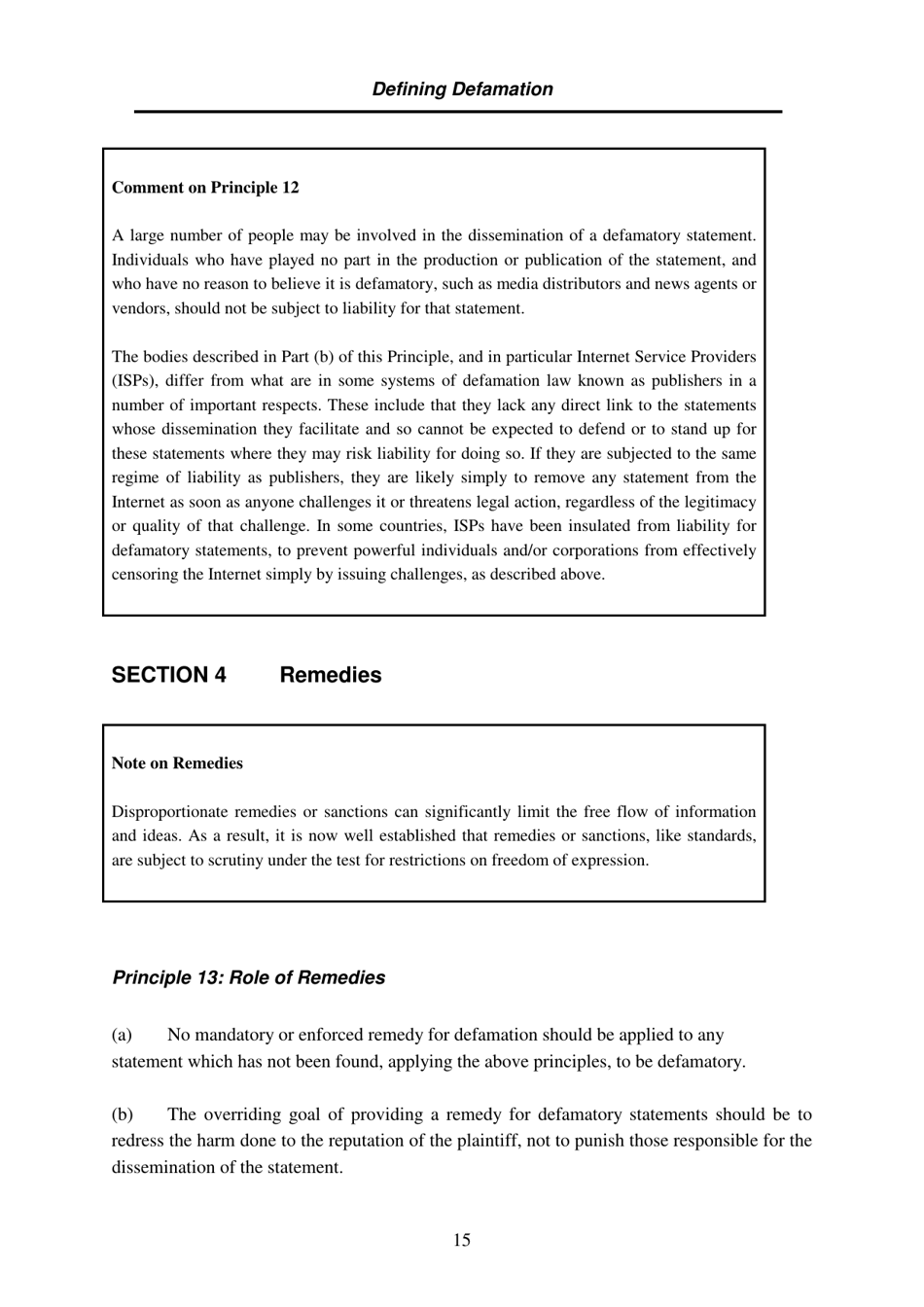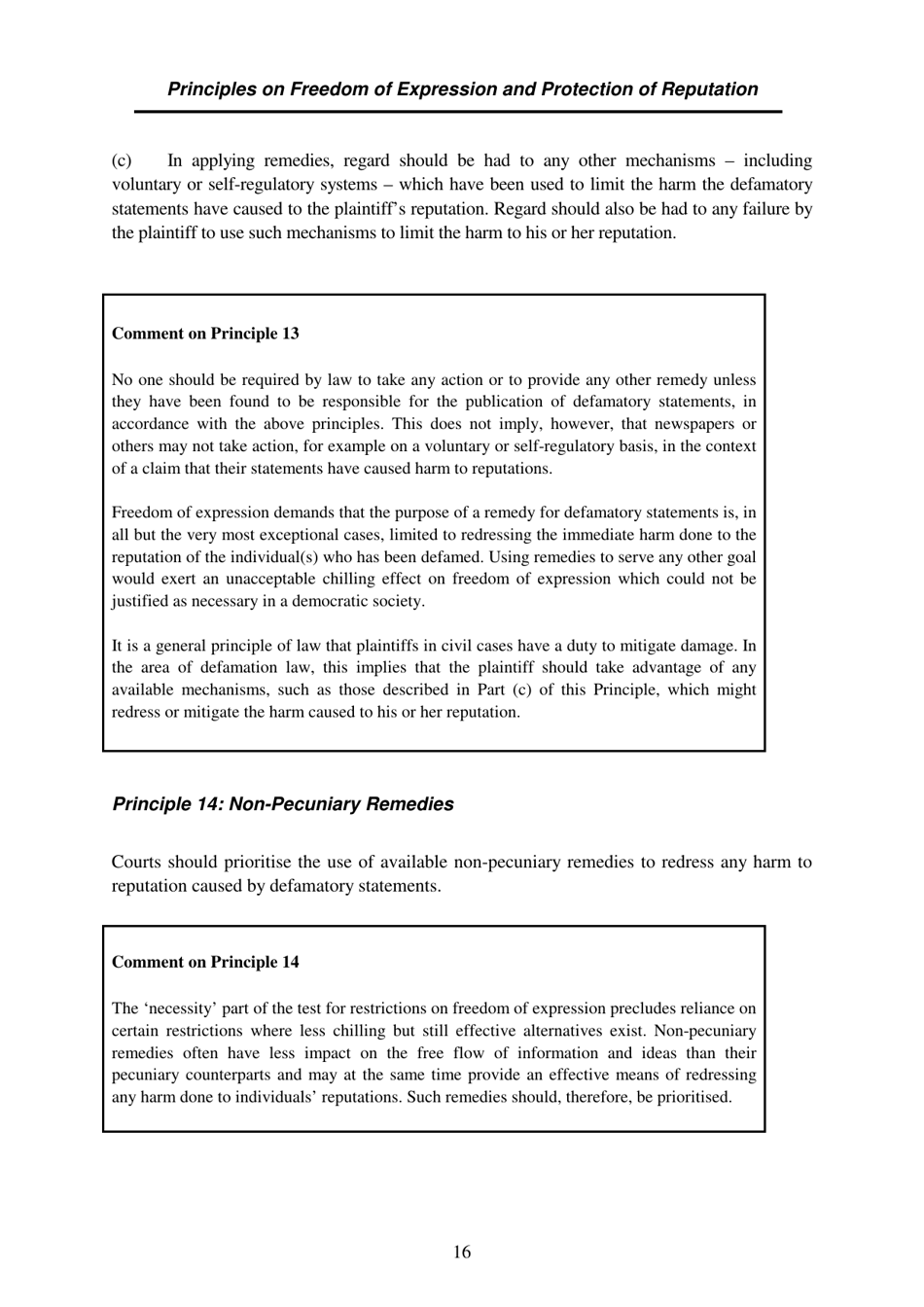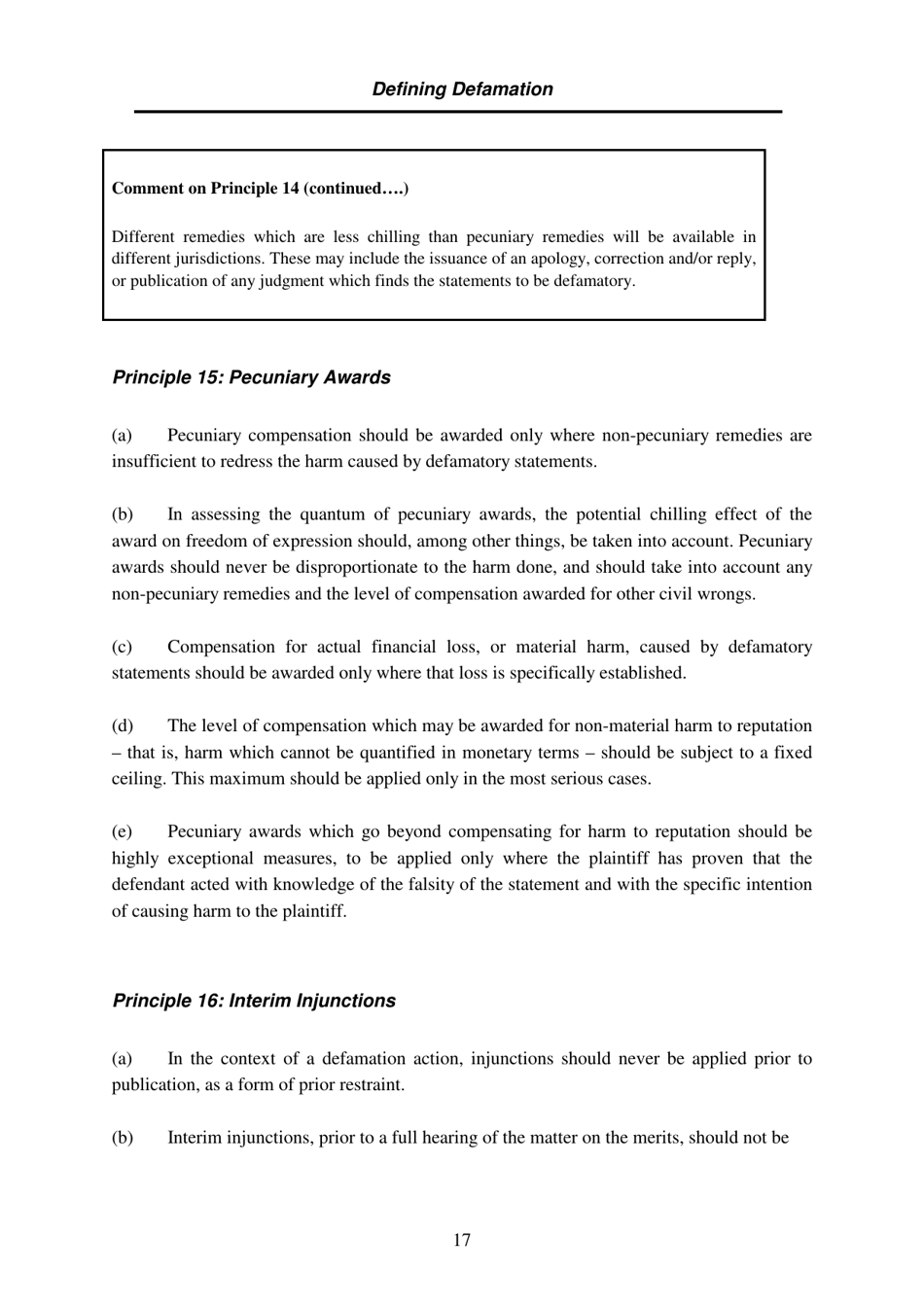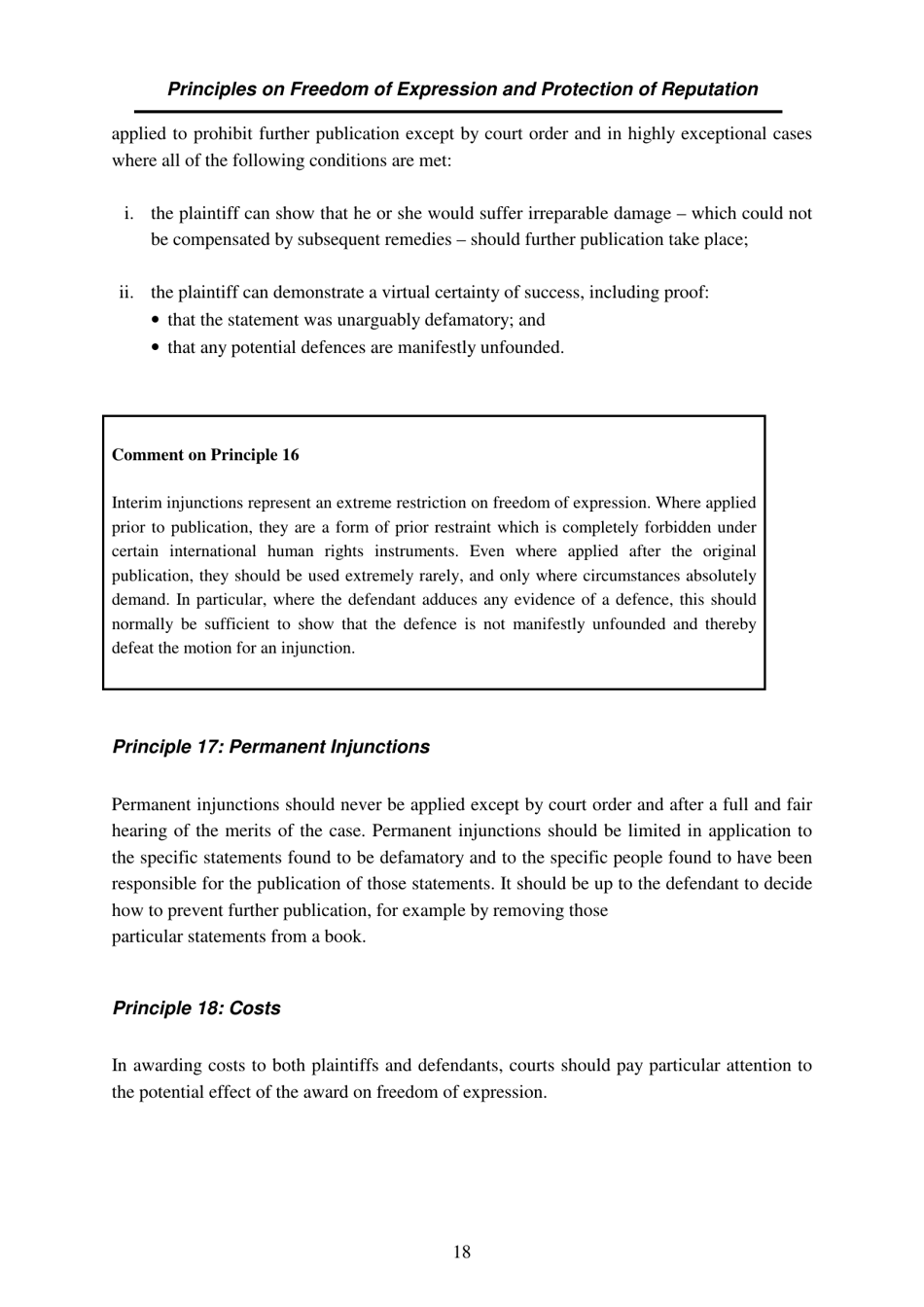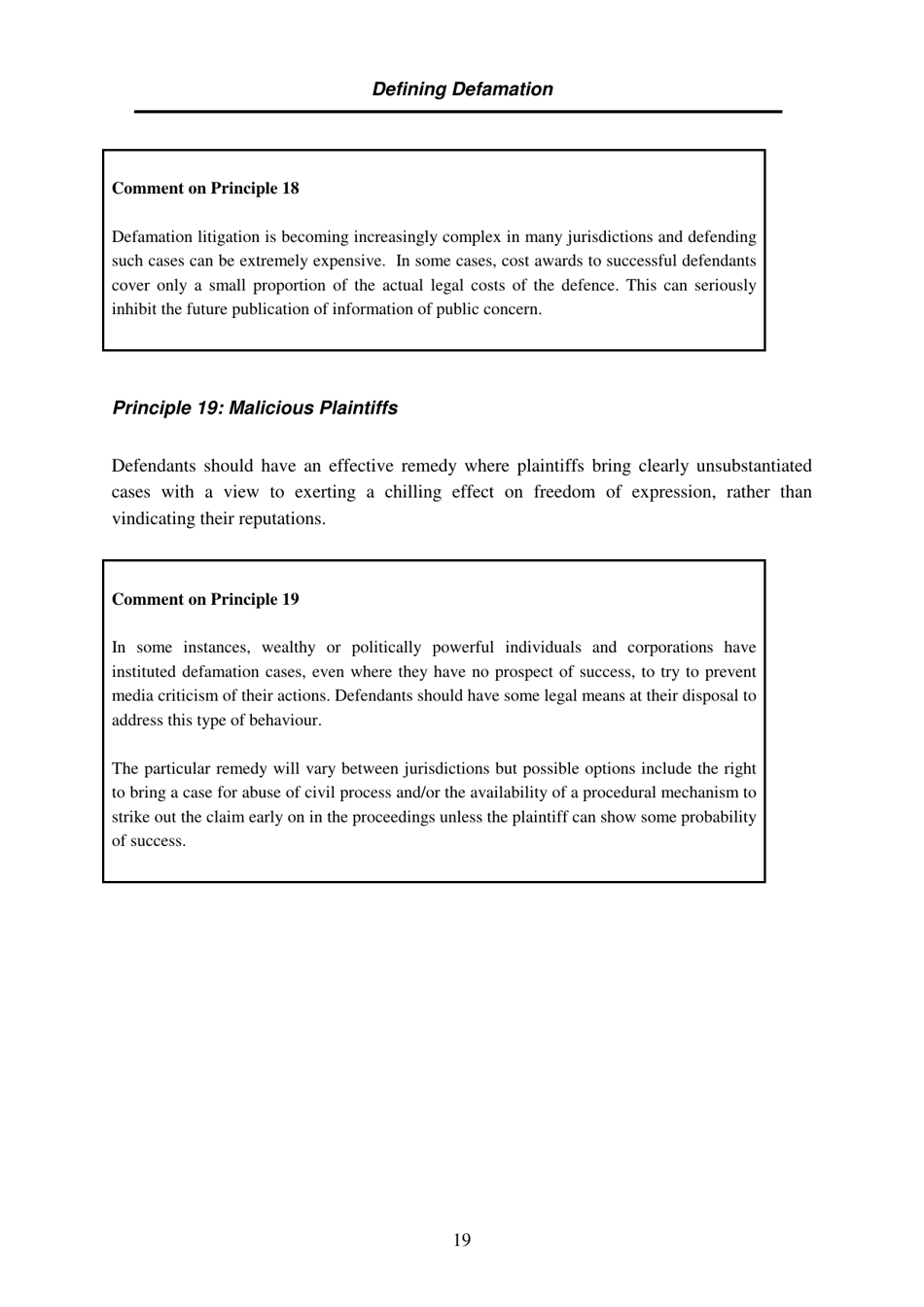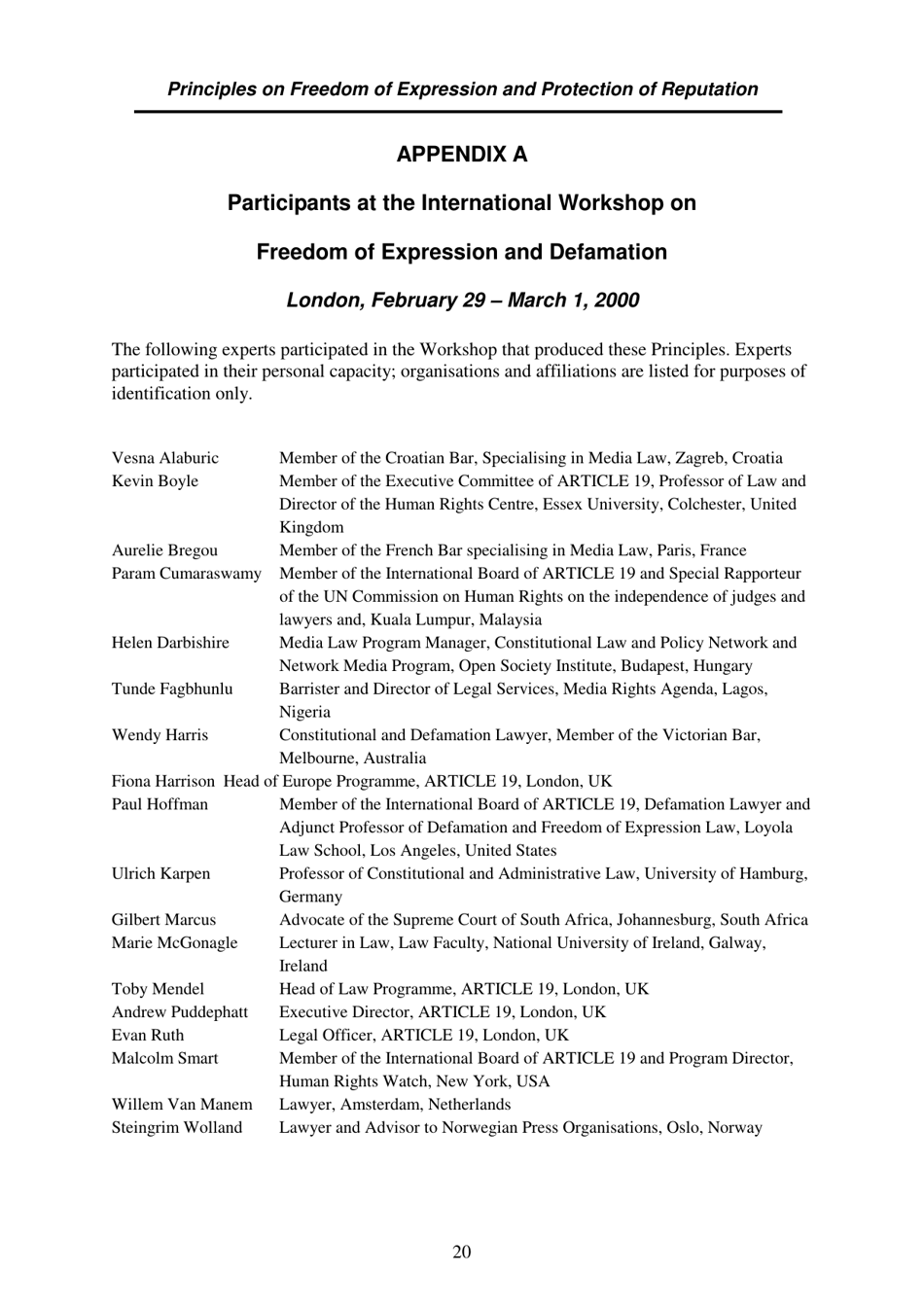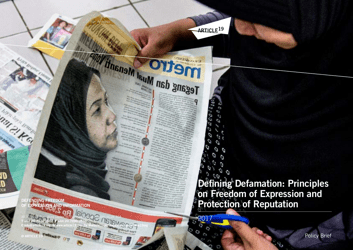Defining Defamation: Principles on Freedom of Expression and Protection of Reputation - Article 19
The document "Defining Defamation: Principles on Freedom of Expression and Protection of Reputation - Article 19" provides guidelines and principles for balancing the right to freedom of expression with the need to protect an individual's reputation. It seeks to establish standards that can help address cases of defamation in a fair and balanced manner.
Article 19 is a global organization that promotes freedom of expression and protection of reputation. It does not file the Defining Defamation: Principles on its own, but rather it is a collaborative effort by experts and organizations in the field of human rights and freedom of expression.
FAQ
Q: What is Article 19?
A: Article 19 is a document that defines principles on freedom of expression and protection of reputation.
Q: What is defamation?
A: Defamation refers to the act of making false statements that harm someone's reputation.
Q: What are the principles outlined in Article 19?
A: The principles outlined in Article 19 focus on the importance of freedom of expression while also acknowledging the need to protect reputation.
Q: Why is freedom of expression important?
A: Freedom of expression is important because it allows individuals to express their opinions, ideas, and information freely.
Q: How does defamation harm someone's reputation?
A: Defamation harm someone's reputation as false statements can lead to negative public perception and damage their personal or professional reputation.
